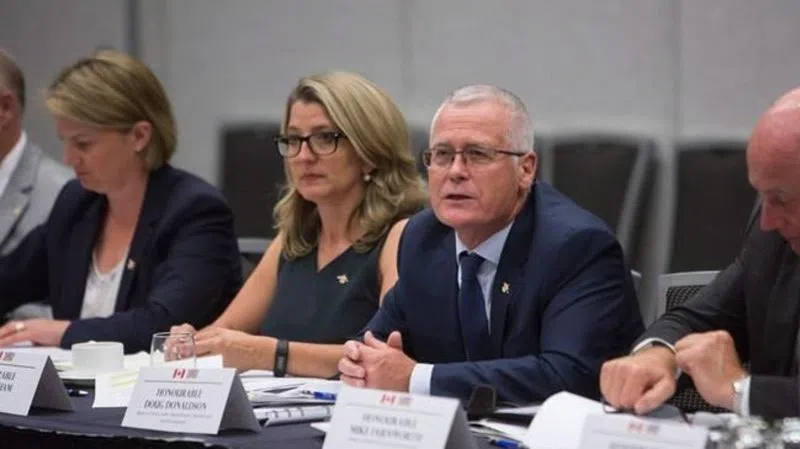
B.C. defers stumpage fees for 3 months to aid forest industry during pandemic
VICTORIA — The British Columbia government is deferring a timber harvesting fee charged to forest companies in an effort to help the struggling industry survive during the COVID-19 pandemic.
Forests Minister Doug Donaldson said Thursday the government will not collect stumpage fees for the next three months.
He said 45 sawmills are closed indefinitely or shut down permanently, affecting 7,000 workers. The timber export market is in steep decline, especially in the United States where housing starts have slowed and timber prices have dropped, said Donaldson.
If export markets rebound, he said many of the curtailed mills can start up operations. Donaldson said the stumpage fee deferral can help companies endure until markets improve.


